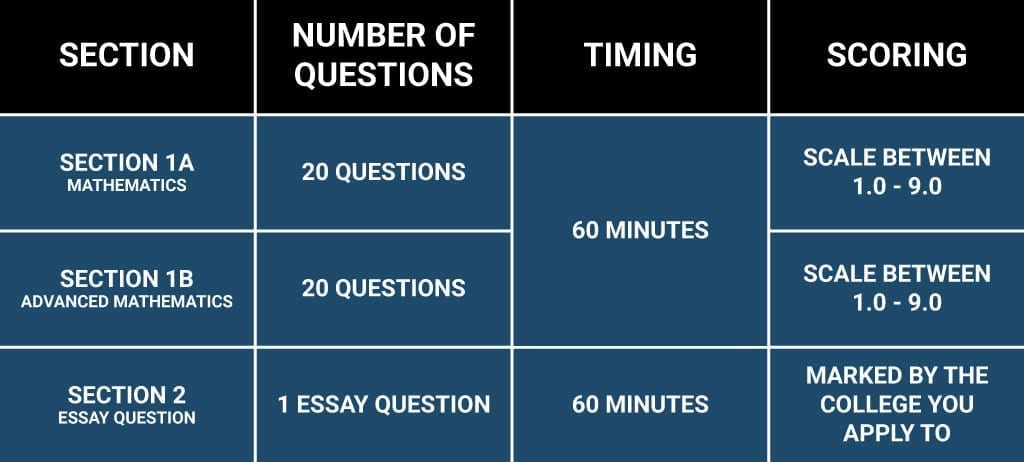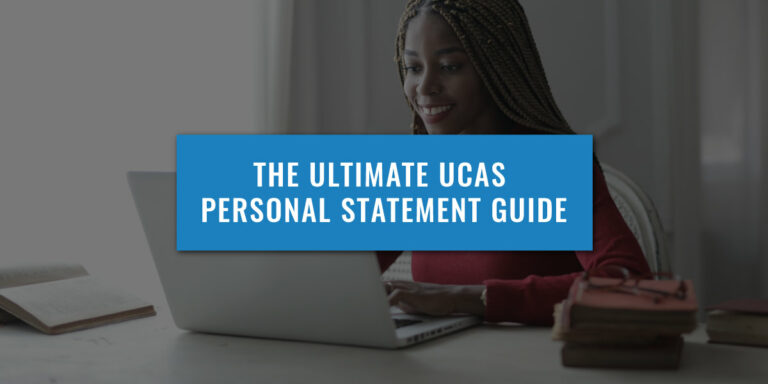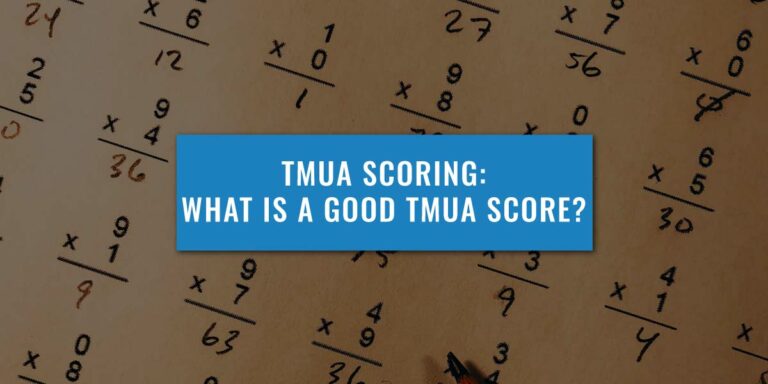The ECAA is no longer being used for Cambridge Economics. The TMUA is used instead for 2022 Economics Applicants.
If you are looking to study Economics at Cambridge then you’ll need to sit the Economics Admissions Assessment (ECAA).
In this article, we will take you through the basics of the ECAA so you have a full understanding of what the test entails. Read on to learn why the test is used, how it is scored and what the assessment actually tests.
What is the ECAA?
What does the ECAA Test?

The ECAA consists of two main sections:
Section 1:
Tests Maths and Advanced Maths through multiple-choice questions. You will face 20 Mathematics questions (Section 1A) and 20 Advanced Mathematics questions (Section 1B).
You have 60 minutes to complete the 40 multiple-choice Mathematics questions. Previously, in the older specification, this section contained 20 Problem Solving and 15 Advanced Mathematics questions so make sure you are practising using the most up to date resources. You will need a pencil for this section.
Section 2:
Is an extended essay responding to an excerpt of text. You are allowed 60 minutes for this section. Section 2 requires candidates to read a short passage of 1-2 pages and then write an essay to answer a question drawing on information from the passage. There is no choice of essay questions – you must answer the one you are presented with. You will need a pen for this section.
If you would like some more information on each of the ECAA Sections, the guides below outline the types of questions that could come up and tips for answering them:
Why is the ECAA Used?
Cambridge applicants tend to be a bright bunch and therefore usually have excellent grades. The majority of economics applicants score in excess of 90% in their A level subjects. This means that competition is fierce – meaning that the universities must use the ECAA to help differentiate between applicants.

When do I sit the ECAA?
How hard is the ECAA?
The ECAA questions are designed to draw upon a candidate’s ability to use and apply their reasoning and mathematical knowledge. The assessment is designed to challenge students who have achieved the highest grades throughout their schooling, so it should be fairly difficult – but this doesn’t mean it can’t be revised for!
How is the ECAA Scored?
In Section 1, each correct answer scores 1 mark and is scored on a scale of 1.0 to 9.0. No marks are deducted for incorrect answers. Results for Part A and Part B are reported separately. Most students score between 3.0-5.0 on Section 1A and the strongest candidates score over 6.0. This is the same with Section 1B but you should aim for 6.5 to stand out from other applicants.
In Section 2, the essay is assessed from the quality of the student’s reasoning, and ability to construct a reasoned, insightful and logically consistent argument with clarity and precision. The essay is scored by individual Cambridge colleges so we can’t comment on the average score or result.
How does Cambridge Use the ECAA?
Different Cambridge Colleges will place different weightings on separate components so it’s important you find out how your marks will be used by emailing the College Admissions Office.
In general, Cambridge University will interview a high proportion (~80%) of realistic applicants so the ECAA score isn’t vital for making the interview shortlist. However, it will play a huge role in the final decision after your interview so scoring highly is important to gain a place – especially considering that just 14% of applicants to Cambridge Economics are accepted.
The ECAA is no longer required for Cambridge Economics applicants, you need to score highly on the TMUA instead.
The UniAdmissions TMUA Programme will rapidly boost your score and triple your chances of succeeding in your application.
Our expert tutors will guide you through past papers in mock exam scenarios so that you are well-prepared by the time your exam comes around. UniAdmissions helps students refine and hone their abilities so that they’re exam-ready on test day for all aspects of the TMUA exam.







